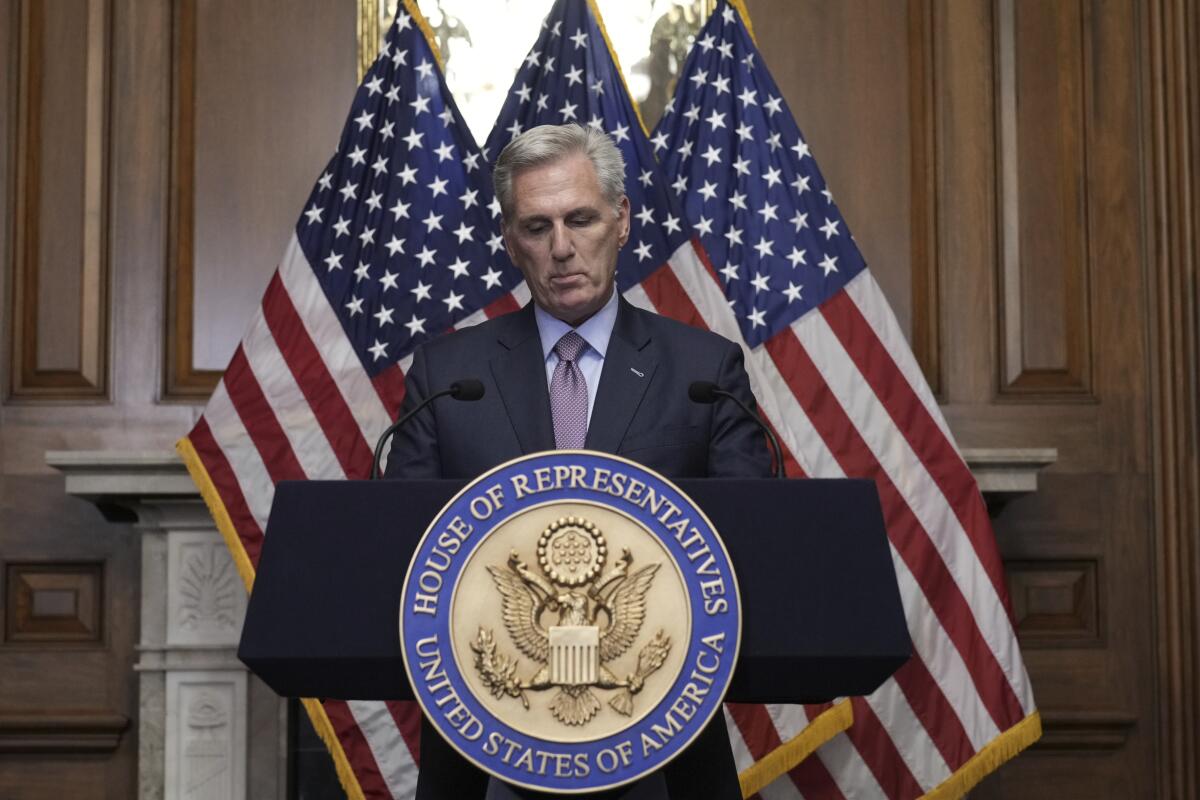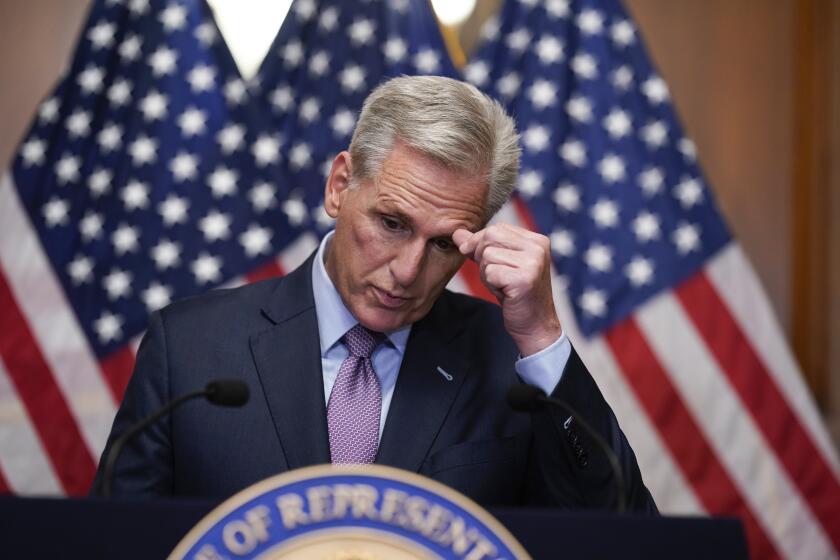Editorial: Kevin McCarthy played with MAGA fire — and got burned

It’s difficult to summon much sympathy for former House Speaker Kevin McCarthy, who lost his dream job Tuesday when eight Republican dissidents turned on him. Although the Bakersfield Republican did the right thing last week in supporting a measure to avert a government shutdown that received bipartisan support, his record before then is less worthy of admiration.
This is the same McCarthy who voted to challenge some of the results of the 2020 election, courted Donald Trump after the Jan. 6, 2021 attack on the Capitol, appeased hard-right members of his conference and unilaterally acted to authorize a baseless inquiry into impeaching President Biden.
Why has Congress ground to a halt? Radical Republicans turned a once-proud “small-government” party into a dangerous, nihilistic “anti-government” party.
Nor should Democrats, who voted as a bloc to remove him, be blamed for not coming to McCarthy’s rescue after Rep. Matt Gaetz (R-Fla.) moved to vacate the speaker’s chair. It is hard to see why the opposing party should have bailed out McCarthy, given his willingness to seek spending limits more restrictive than those possible under a deal he made with the White House in May to suspend the debt ceiling and avert a default. McCarthy didn’t help himself over the weekend when he said Democrats were the ones “willing to let government shut down, for our military not to be paid” when 90 Republicans and only one Democrat voted against the stopgap measure to prevent a government shutdown.
Yet McCarthy’s ouster from the speakership could lead to even more dysfunction and drama in the House. What might be called the Nihilist Caucus in the Republican conference has been empowered by its coup against McCarthy. If these hard-liners exercise a veto over the selection of McCarthy’s successor, they could put the next speaker on an even tighter leash than the one they fastened around McCarthy’s neck.
Republicans have tried — and failed — several times to find evidence of wrongdoing that would justify impeaching Biden. Why is it coming up again?
In his better moments McCarthy recognized that members of Congress are supposed to be stewards of the public interest, not just provocateurs and partisan point scorers. “I don’t regret standing up for choosing governance over grievance,” McCarthy told reporters after he was voted out of the speaker’s chair. “It is my responsibility. It is my job. I do not regret negotiating. Our government is designed to find compromise.”
The price McCarthy paid for acting on that philosophy tells his successor that putting the nation first is politically perilous — assuming that the next speaker will even want to seek bipartisan solutions.
The stopgap funding legislation for which McCarthy paid a political price keeps the federal government running until Nov. 17. Bipartisanship will be necessary to continue government operations after that, as well as to support important priorities such as aiding Ukraine in its resistance to unprovoked Russian aggression.
For the sake of their party and the country, Republicans in choosing a new speaker should seek a conciliator, not a chaos agent.
More to Read
A cure for the common opinion
Get thought-provoking perspectives with our weekly newsletter.
You may occasionally receive promotional content from the Los Angeles Times.












